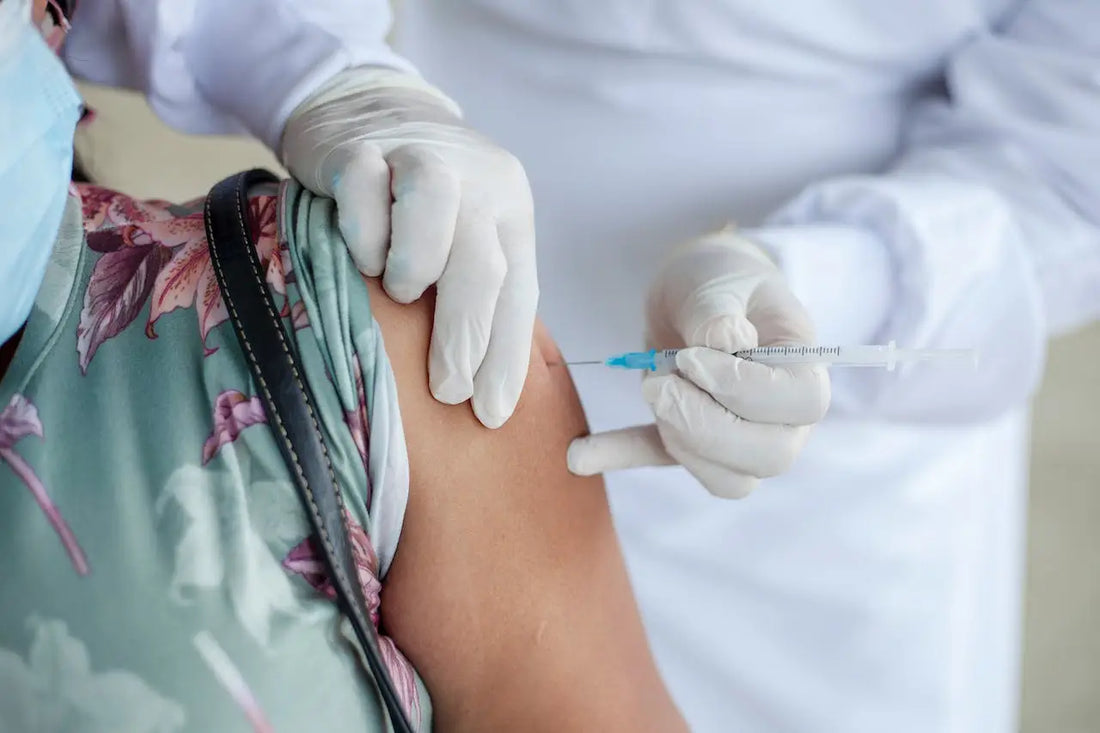
Covid-19 Booster Vaccination FAQs: Who, When, and Why to Enhance Your Protection
As the fight against the Covid-19 pandemic continues, staying up to date with vaccination information is more crucial than ever. With the introduction of the booster vaccination, many individuals find themselves seeking clear answers about its purpose, necessity, and eligibility criteria. In this comprehensive FAQ article, we aim to tackle your most pressing questions and concerns surrounding the Covid-19 booster.
We'll delve into topics such as who should consider the booster shot, the appropriate timing for receiving it, and the benefits it offers in strengthening immunity amid emerging variants. By providing reliable, fact-based information, we endeavour to help you make the best decisions for yourself and your loved ones in the ongoing battle against Covid-19. Empower yourself with knowledge and contribute to the collective efforts to protect public health and return to a sense of normalcy.
1. The Purpose of Covid-19 Booster Vaccinations
Covid-19 booster vaccinations are additional doses of the vaccine designed to extend and enhance the immunity generated by the initial doses. Due to the potential for waning immunity over time and the emergence of new, more transmissible virus variants, booster vaccinations can offer an extra layer of protection against Covid-19. They are particularly relevant for vulnerable individuals, such as the elderly and those with compromised immune systems, who may be at greater risk of developing severe illness.
2. Eligibility for Booster Shots: Who Should Consider Them?
While the eligibility criteria for Covid-19 booster shots may vary based on local health authority guidelines, we'll examine the general categories of individuals who may be advised to receive them:
- Elderly individuals: Studies show that immune responses can diminish with age, making the elderly more susceptible to infections. Booster shots can help bolster their immune response, reducing the risk of severe illness and complications.
- People with weakened immune systems: Individuals with certain medical conditions (e.g., cancer, HIV) or those taking immunosuppressive medications may have reduced immune responses to the initial vaccine doses. A booster shot can help enhance their protection.
- Healthcare workers and frontline staff: These individuals are at increased risk of exposure to the virus and may benefit from a strengthened immune response provided by a booster shot.
Guidance on booster vaccinations may change as more data and research become available, so it's essential to follow local health authority guidelines and consult your healthcare provider to determine if a booster shot is right for you.
3. The Timing of Booster Vaccinations: When Should You Get It?
The appropriate timing for Covid-19 booster vaccinations varies depending on factors such as the type of initial vaccine received, the individual's medical history and risk factors, and local health authority recommendations. In general, the following intervals are suggested:
- For mRNA vaccines (Pfizer-BioNTech and Moderna): A booster shot may be recommended at least six months after the completion of the initial two-dose series.
- For viral vector vaccines (AstraZeneca and Johnson & Johnson): While specific guidance for booster vaccination timing may be limited, it's best to consult your healthcare provider and follow local health authority guidelines as they become available.
It's important to note that these recommendations are subject to change as more data and research emerge. Staying informed and discussing options with your healthcare provider is vital for determining the best course of action.
4. Benefits and Precautions: Weighing the Pros and Cons
While the Covid-19 booster vaccination offers significant benefits in enhancing existing immunity, it's essential to consider potential risks and precautions. Here are some factors to keep in mind:
Pros:
- Extended protection: Booster shots can extend the duration of immunity, providing continued protection against Covid-19.
- Enhanced protection: They can also strengthen the immune response, particularly in vulnerable groups, reducing the risk of severe illness, hospitalisation, and death.
- Adaptation to variants: Booster vaccinations may offer increased protection against emerging virus variants, contributing to an ongoing defence against mutations.
Precautions:
- Side effects and adverse reactions: While generally mild and short-lived, booster shots can produce side effects similar to those experienced after the initial doses, such as sore arms, fatigue, and mild fever. Severe adverse reactions are rare but should be monitored and reported to healthcare providers.
- Unnecessary boosters: Healthy individuals with robust immune responses may not require booster shots and should follow local health authority guidelines to avoid unnecessary vaccination.
5. Staying Informed: Tracking Updates and Recommendations
As the Covid-19 pandemic progresses and more research surfaces, it's crucial for individuals to stay abreast of updates and recommendations regarding booster vaccinations. Resources to help you stay informed include:
- Local health authorities: Follow updates from your regional health department or equivalent body, which will provide guidance tailored to your specific location.
- Healthcare providers: Consult with your healthcare provider to discuss your eligibility and necessity for a booster shot based on your medical history and risk factors.
- Reputable health organisations: Track information from reliable sources such as the World Health Organization (WHO) and the Centers for Disease Control and Prevention (CDC).
Understanding and staying informed about Covid-19 booster vaccinations can help you make the best decisions for your health and contribute to collective efforts in controlling the pandemic. Ensuring clear communication and following guideline updates from trusted sources will be key to navigating this ever-evolving situation.
Conclusion
Staying informed about the Covid-19 booster vaccination is critical to making informed decisions and keeping yourself and your loved ones protected. Leyton Pharmacy is here to help you navigate this evolving situation with reliable information and support. With our knowledgeable team and commitment to prioritising your health, you can rest assured that you're receiving guidance from trusted professionals.
In addition to Covid-19 vaccine services, Leyton Pharmacy offers comprehensive healthcare solutions, including flu vaccinations, travel health consultations, and a wide range of pharmacy products tailored to your needs.
Ready to take the next step in protecting your health and well-being? Contact our local pharmacist today to learn more about our Covid-19 vaccination services and discover how we can help you achieve optimal health in every aspect of your life.
